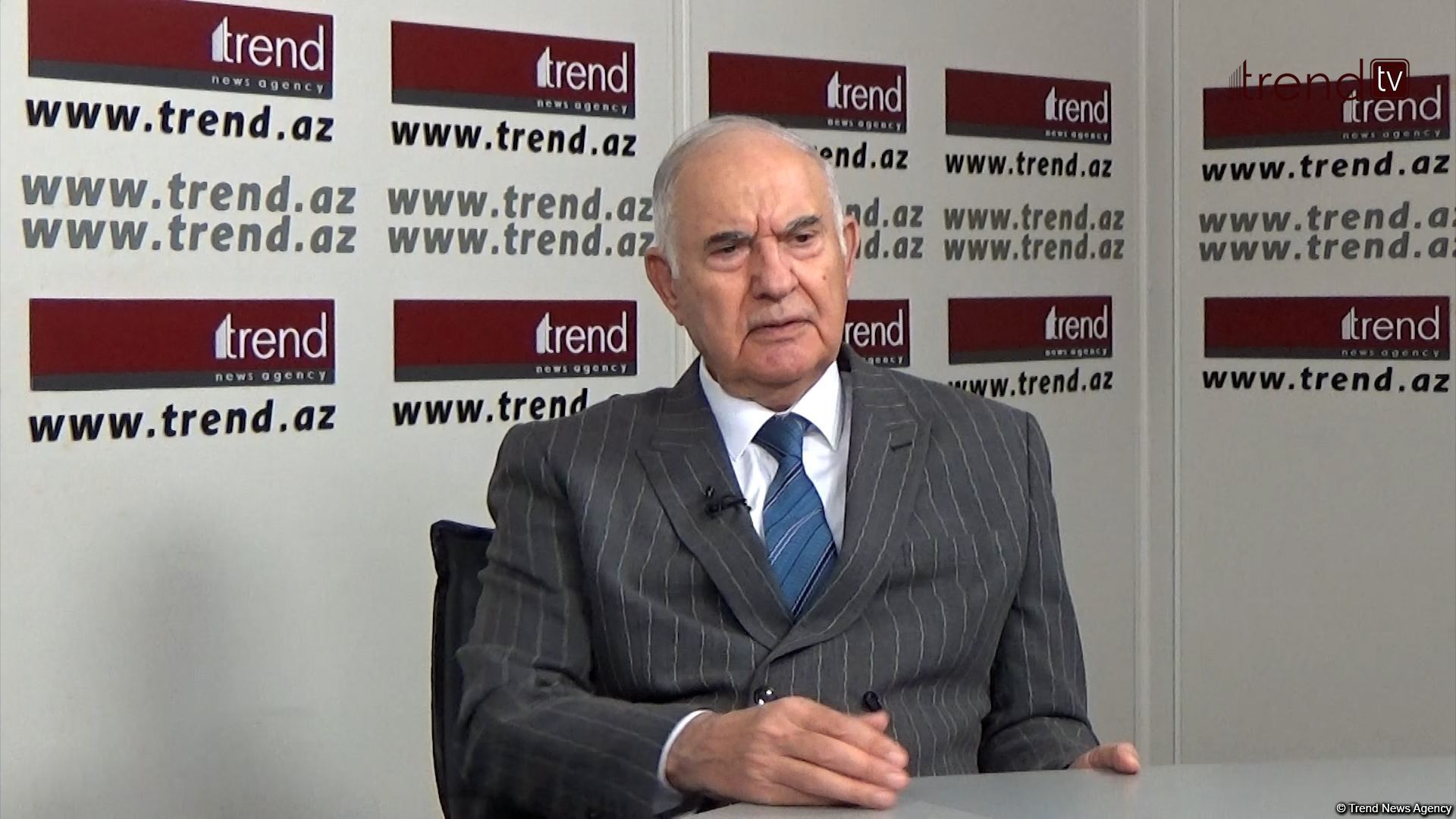BAKU, Azerbaijan, October 23. The 5th Tbilisi Silk Road Forum, held on October 22, 2025, has clearly showcased the regional transport and economic prospects, Azerbaijani political analyst Azer Garayev told Trend.
The South Caucasus has historically been considered the intersection of major transport, trade, and energy flows between Europe and Asia. The geographical position of Azerbaijan, Armenia, and Georgia allows the region to play the role of a strategic hub for transit cargo, energy resources, and investment flows. Serious changes have occurred in the region in recent years.
"The liberation of Karabakh from occupation, strengthening of economic integration, and acceleration of infrastructure projects are restoring the South Caucasus as an important transit hub connecting the East and the West. In this context, the development of transport corridors, their modernization, and the creation of new trade opportunities are of particular importance, and the 5th Tbilisi Silk Road Forum became not only a platform for demonstrating political will but also a place for practical discussion of the region's economic and logistics initiatives.
More than 2,300 participants from 73 countries followed the forum. The event was attended by Azerbaijan’s Prime Minister Ali Asadov, Armenia’s Prime Minister Nikol Pashinyan, and Georgia’s Prime Minister Irakli Kobakhidze, as well as representatives of international organizations, business circles, and logistics experts. The main goal of the forum was to create a discussion platform for turning political statements into practical steps. In this context, the forum covered topics such as transport and transit—routes, infrastructure, and multimodal terminals; economic cooperation—reducing trade and logistics barriers and creating favorable conditions for investment; energy and digitalization—integration of networks and implementation of technologies; and regional stability - building trust between countries and establishing a peaceful environment," he said.
According to him, one of the most important issues raised at the forum was Azerbaijan’s removal of all restrictions on transit cargo transportation to Armenia.
“Historically, these restrictions were imposed due to political tensions, limiting the efficiency of trade and logistics in the region. In practical terms, the significance of this decision was demonstrated by the transportation of Kazakh grain to Armenia through Azerbaijani territory. This example shows that the region can function as a single logistics hub and that political decisions can align with economic interests. Armenia’s Prime Minister Nikol Pashinyan expressed gratitude to President of Azerbaijan Ilham Aliyev for this decision, stressing that the lifting of restrictions contributes to increased cargo turnover, infrastructure investments, and the strengthening of peace in the region. This is one of the rare examples where political decisions translate into practical results.
Another key issue highlighted at the forum was the Zangezur Corridor, also known as the Trump Route. This route aims to connect the South Caucasus with European and Asian markets, as well as ensure transit of goods from Central Asia. Thanks to this corridor, the delivery time of goods from Central Asia to Europe will be shortened, logistics chains will be optimized, transportation costs reduced, and international trade through the South Caucasus will expand," the analyst explained.
Garayev pointed out that successful implementation of this route requires infrastructure coordination among countries, use of modern technologies, and standardization of border procedures, while Azerbaijan’s removal of transit restrictions was the first step confirming the practical viability of this corridor.
“The forum also paid special attention to the Middle Corridor, which connects Europe and Asia through the South Caucasus. The corridor integrates railway lines for rapid container transit, major highways, Black Sea and Caspian ports, and multimodal terminals, providing the ability to quickly transfer goods between rail, road, and sea transport. The Zangezur Corridor could also become part of this route.
The removal of transit restrictions and the development of transport routes bring multifaceted economic benefits. For example, increased cargo turnover—as shown by the Kazakh grain case—proves the region’s capacity to handle large volumes of international freight. Reduced costs—simplified transit lowers logistics expenses and delivery times. Investment attraction—a stable and transparent transit system boosts foreign investor confidence.
Economic integration—the Trump route for international peace and prosperity (TRIPP) and the Middle Corridor contribute to creating a unified transport space in the South Caucasus. According to experts, the growing transit potential could raise the countries’ GDP by several percentage points within five to seven years, stimulating the development of sectors such as logistics, warehousing, port infrastructure, insurance, and financial services, he explained.
The analyst emphasized that overall, the Forum demonstrated the South Caucasus is not only connecting physical routes but also preparing to create a modern technological infrastructure that will enhance the region’s competitiveness.
“Eliminating transit restrictions, creating new routes, and modernizing infrastructure have both economic and political significance. Moreover, this strengthens trust between countries—practical steps reinforce political statements, reduce the risk of conflict, increase economic interdependence and stability, and elevate the region’s role internationally. The South Caucasus is becoming one of the strategic hubs in the global trade and logistics network.
Forecasts also suggest that in the next 5–10 years, the region will multiply its transit cargo turnover, attract international investments in transport and energy, and consolidate its position as a stable and efficient transit center connecting Europe, Asia, and the Middle East,” he added.
Garayev pointed out that the 5th Tbilisi Silk Road Forum hit the nail on the head, reaffirming the South Caucasus's pivotal role in transport, trade, and energy. Meanwhile, Azerbaijan’s lifting of transit restrictions and the smooth sailing of Kazakh grain served as a feather in the cap, showcasing this reality in action.
“The creation and modernization of transit corridors, including the Trump Route and the Middle Corridor, open new opportunities for economic growth, trust-building, and regional integration. The forum showed that the South Caucasus is ready to build an efficient, sustainable, and technologically advanced logistics network that will ensure closer integration with Europe and Asia. In the long term, these projects will turn the South Caucasus into one of the strategic transit hubs, increase investment inflows, and strengthen the region’s economic and political stability,” the analyst concluded.
Stay up-to-date with more news on Trend News Agency's WhatsApp channel







